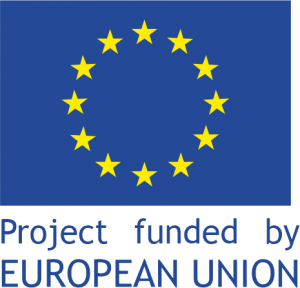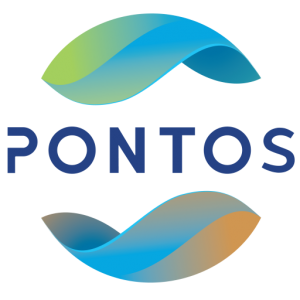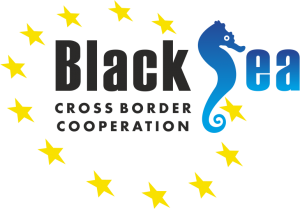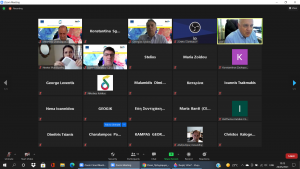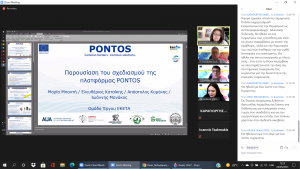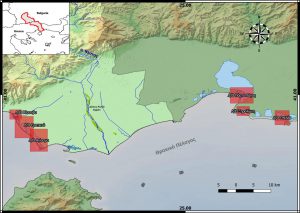Article was prepared by Menelaos Chatziapostolidis
The first Brainstorming session of the PONTOS project was held online on May 26th 2021. The event aimed at presenting to Greek stakeholders the activities already carried out, as well as to discuss with them the development of the platform and of the next steps regarding the Nestos delta pilot area.
It was co-organized by the Greek partners of the PONTOS project, notably the teams of the Department of Environmental Engineering of the Democritus University of Thrace (DUTH) and the Information Technologies Institute of the Centre of Research and Technology Hellas (CERTH), headed respectively by Prof. Georgios Sylaios and Dr Ioannis Manakos, while the 85 participants represented a broad range of actors involved in the design, development and implementation of policies related to the management of natural resources at local, regional and national level.
The introductory speeches by Konstantinos Simitsis and Andreas Karagiorgis, Deputy Governors of the Eastern Macedonia-Thrace region responsible respectively for Development and Fisheries, Philippos Anastasiadis, Mayor of Paggaio and Georgios Gaidajis, President of the Management Body of the National Park of Eastern Macedonia-Thrace, highlighted the wider interest of local actors for innovative approaches to environmental monitoring that contribute to sustainable development, reduce costs and improve performance and efficiency of public services. In addition, political officials underlined the vital importance of decentralized cooperation with the local communities and civil society of the countries of the wider Black Sea Basin region, as it can contribute to sustaining and enriching the longstanding and multidimensional relations with Greece and particularly with Northern Greece.
The topics presented by the DUTH team included the preparatory studies undertaken on coastal erosion, eutrophication and crops irrigation in the project pilot site. The Nestos River deltaic zone constitutes a core part of the wetland complex and one of the most important protected areas in Greece, due to its biological, aesthetic, scientific, geomorphological and pedagogical value, while at the same time it is a fundamental pillar for the local agricultural sector. The common thread of the presentations and the ensuing discussions was the real and pressing need to enable public authorities and empower local communities to effectively and efficiently monitor and protect their natural capital with tools that combine frontier technologies and innovations with user-friendly operational features.
In this context, a customized questionnaire was circulated amongst participants so that their feedback can provide input in the final design of the PONTOS platform. The initial version of the PONTOS platform will be released later this year and, when finalized by the end of 2022, it will offer a broad array of applications and services that will support the use and management of Earth Observation products designed to facilitate the environmental monitoring of the Black Sea Basin area. Similar brainstorming sessions will be held in the other pilot sites of the PONTOS project in Armenia, Georgia and Ukraine, and they will be followed by training workshops this coming fall.
Copernicus assisted environmental monitoring across the Black Sea Basin-PONTOS is a 30-month project funded by the European Union’s ENI CBC Black Sea Basin Programme 2014-2020. The PONTOS will make information about the Black Sea environment from the EU Copernicus Earth Observation platform accessible to scientists, policymakers, citizens, and other relevant stakeholders. It will utilize information technologies to automatically retrieve Copernicus products, couple them with national or regional infrastructures for data acquisition and processing, and provide monitoring services for the Black Sea and the surrounding environment in a transboundary, standardized, and homogenized manner. The environmental monitoring system to be developed will be tested in pilot sites across Armenia, Greece, Georgia, and Ukraine.
